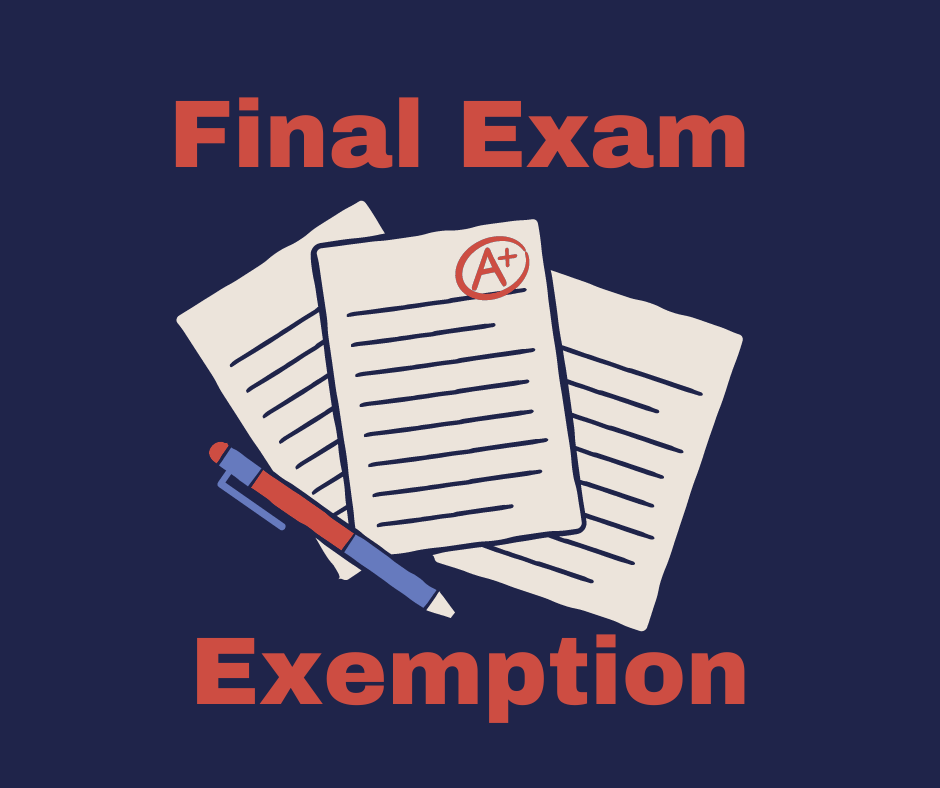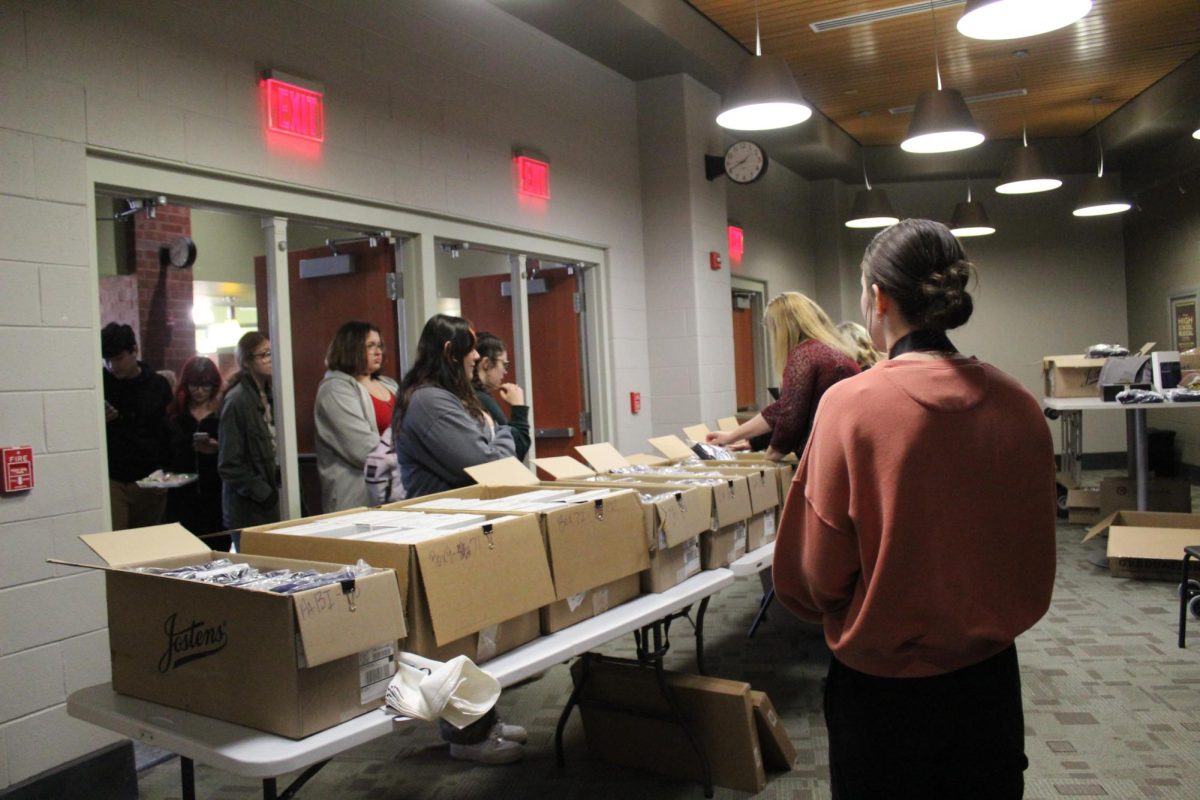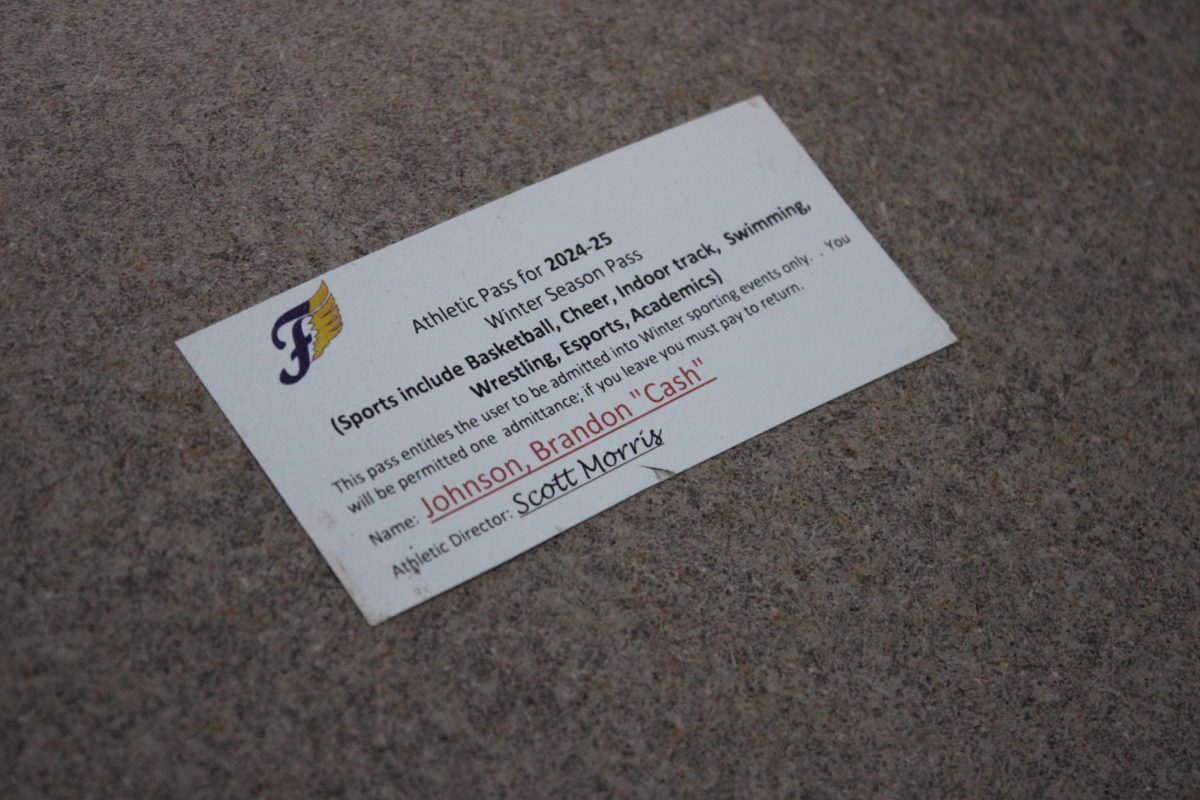Imagine if you could get out of a final in a really hard class just by being a good student. Impossible right? Not at Fluvanna County High School.
Last semester, FCHS implemented an exemption policy for students which said that if you have an A and a minimum of four absences, or in some classes, a B and a minimum of three absences, you could get out of taking your final exam. This used to be a privilege for only seniors, but the policy made it apply to almost everyone. Though it sounds simple, some students and staff found the new policy confusing.
“The exam policy was a good idea, but it needed more preparation. I don’t think it was thought through enough before being implemented and left many confused right before exams, which created a bad atmosphere,” said junior Greenlee Sensebaugh.
FCHS has had a similar policy for years, but as noted, it used to only apply to seniors. It was seen as a perk for the graduating class, and something that many students looked forward to. Having the current policy apply to all students, regardless of grade, has upset some older students.
“I feel [the exemption policy] should just be for upperclassmen. It’s more important for the underclassmen to take their exams to move forward and know what classes they need to be put in,” said junior Georgia Smith.
Adapting a policy from something that used to just affect one grade to something that affects the whole school can be challenging, and this policy change was no different. One nuance that students and teachers struggled with was the classification of excused versus unexcused absences. This caused a lot of controversy as only very specific absences were actually excused, and others that some felt were unavoidable still counted against students.
“Students who had COVID, chronic health issues, or surgeries also expressed to me that the policy was unjust. Fortunately, our administration entrusted the faculty to make judgment calls in these unique situations,” said science teacher Amy Richardson.
What some considered a lack of clarity in the policy caused questions to arise for counselors and faculty members who sometimes also weren’t clear on the details.
“They also needed to get teachers more in the loop because even they didn’t really know what was going on,” said Smith.
In most classes, students believe the policy is a motivator for upperclassmen to come to school more and focus less on finals in favor of focusing more on things like college applications and where they’re headed to next.
“I admire our efforts to improve student attendance and to provide positive rewards for responsible behaviors. [However], as a teacher, it did prove to be difficult to maintain student focus when a final exam was removed as an end-of-course checkpoint,” Richardson said.
For classes like electives and foreign languages, some teachers chose to have post-tests instead of finals. So those teachers got to decide what they wanted to do with the exemption policy and make their own rules. However, some feel that if there’s going to be a policy, it should remain the same across the board, regardless of class.
“I like the idea of the exemption, but I think that it should stay consistent,” said freshman Rachael Broxon. “Having four classes with four different policies is a little confusing.”
Overall, some students and teachers continue to have mixed feelings about the new exemption policy.
“I like the idea of the exemption policies,” said senior Joseph Mundie. “But I don’t think it should apply to juniors and underclassmen, considering the seniors have been waiting years for this privilege.”







